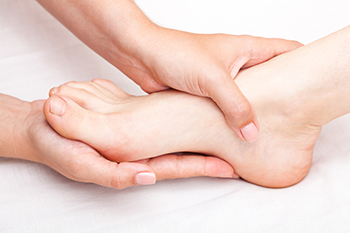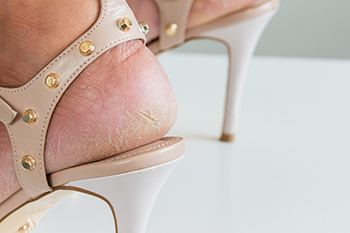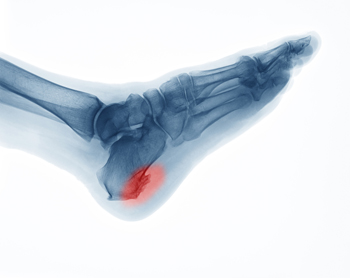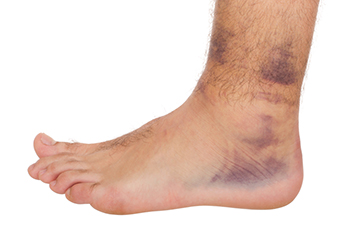Freehold (732) 294-9393
Freehold (732) 294-9393

Lupus patients commonly experience foot-related problems that are painful and can cause disability. These issues encompass various foot structures, including joints, skin, and nerves. Foot problems in lupus patients can originate from joint and soft tissue disorders, dermatological complications, neurological and circulatory issues, and vasculitis. Approximately two-thirds of lupus patients have foot arthritis. Imaging shows inflammatory foot joint abnormalities, with the ankle and metatarsophalangeal joints most affected, essential for mobility. Dermatological issues, including corns and calluses, are common and may lead to foot ulceration. Immunosuppressive treatments increase the risk of skin infections such as fungal infections. Lupus patients face vascular problems, including peripheral vascular disease and Raynaud’s phenomenon. Neurological deficits affect lupus patients which may lead to sensory neuropathy, altered gait, and an increased risk of falls. Foot deformities may not always be apparent due to footwear, and foot problems in lupus cannot always be solely attributed to the disease as they are also prevalent in the general population. Management of foot issues in lupus requires a comprehensive approach and podiatry care. If you have lupus and are experiencing foot problems, it is strongly suggested that you make an appointment with a podiatrist who can help you regain quality of life.
When dealing with systemic disease of the feet, it is extremely important to check the affected areas routinely so that any additional problems are caught quickly. If you have any concerns about your feet and ankles contact Dr. Henry Miller from New Jersey. Our doctor will assist you with all of your podiatric needs.
Systemic Diseases of the Feet
Systemic diseases affect the whole body, and symptoms usually are displayed in the feet. This condition can make a patient’s ability to walk unbearable. Systemic diseases include gout, diabetes mellitus, neurological disorders, and arthritis.
Gout – is caused by an excess of uric acid in the body. Common symptoms include pain, inflammation, and redness at the metatarsal/phalangeal joint of the base big toe. Gout can be treated by NSAIDs to relieve pain and inflammation, and other drugs that lower the acid levels in the body.
Diabetes mellitus – is an increase in the level of blood sugar that the body cannot counteract with its own insulin. Failure to produce enough insulin is a factor in Diabetes.
Diabetes of the Feet
Diabetic Neuropathy – may lead to damaged nerves and affect the feet through numbness and loss of sensation.
Peripheral Vascular Disease – can restrict the blood flow to the feet, and often times lead to amputation of the feet.
If you have any questions please feel free to contact our office located in Freehold, NJ . We offer the newest diagnostic and treatment technologies for all your foot and ankle needs.

Cracked heels can be both painful and unsightly, but with some simple care and attention, you can prevent and heal them. The key to healthy heels lies in consistent and gentle care. This can begin by moisturizing your feet daily, especially after a warm shower or bath. Opt for a thick, hydrating foot cream or petroleum jelly which can help to lock in moisture. Exfoliating regularly by using a pumice stone or foot scrub can help to remove dead skin, but make sure to be gentle to avoid further irritation. Wearing well-fitting shoes with proper arch support is essential. Avoid walking barefoot or wearing non-supportive footwear. Additionally, maintaining a balanced diet and staying hydrated can help to nourish your skin from within. By following these gentle steps, you can keep your heels soft, smooth, and free from painful cracks. For severe cases of cracked heels, it is suggested that you consult a podiatrist for professional guidance.
If the skin on your feet starts to crack, you may want to see a podiatrist to find treatment. If you have any concerns, contact Dr. Henry Miller from New Jersey. Our doctor can provide the care you need to keep you pain-free and on your feet.
Cracked Heels
It is important to moisturize your cracked heels in order to prevent pain, bleeding, and infection. The reason cracked heels form is because the skin on the foot is too dry to support the immense pressure placed on them. When the foot expands, the dry skin on the foot begins to split.
Ways to Help Heal Them
Ways to Prevent Cracked Heels
If you are unsure how to proceed in treating cracked heels, seek guidance from a podiatrist. Your doctor will help you with any questions or information you may need.
If you have any questions, please feel free to contact our office located in Freehold, NJ . We offer the newest diagnostic and treatment technologies for all your foot care needs.

Heel spurs are bony protrusions on the underside of the heel bone that in some cases can cause discomfort and pain. It is generally believed that heel spurs form when calcium deposits accumulate over several months on the calcaneus, or heel bone. However, heel spurs can also be associated with other foot issues, such as plantar fasciitis, where inflammation of the tissue under the foot can contribute to their development. In addition, certain medical conditions like gout, rheumatoid arthritis, and ankylosing spondylitis, all of which damage the joints, can result in heel spurs. Risk factors of heel spurs include having flat feet, engaging in high-impact aerobic exercises, and aging, particularly among people over 62 years old. Obesity, overpronation, and wearing high heels can significantly raise the risk of heel spur development. In fact, younger women tend to have a higher incidence of heel spurs, possibly due to the use of high heels, which can impact foot biomechanics. If you're experiencing heel pain, especially if it's persistent, it's suggested that you make an appointment with a podiatrist for a proper diagnosis and tailored treatment plan.
Heel spurs can be incredibly painful and sometimes may make you unable to participate in physical activities. To get medical care for your heel spurs, contact Dr. Henry Miller from New Jersey. Our doctor will do everything possible to treat your condition.
Heels Spurs
Heel spurs are formed by calcium deposits on the back of the foot where the heel is. This can also be caused by small fragments of bone breaking off one section of the foot, attaching onto the back of the foot. Heel spurs can also be bone growth on the back of the foot and may grow in the direction of the arch of the foot.
Older individuals usually suffer from heel spurs and pain sometimes intensifies with age. One of the main condition's spurs are related to is plantar fasciitis.
Pain
The pain associated with spurs is often because of weight placed on the feet. When someone is walking, their entire weight is concentrated on the feet. Bone spurs then have the tendency to affect other bones and tissues around the foot. As the pain continues, the feet will become tender and sensitive over time.
Treatments
There are many ways to treat heel spurs. If one is suffering from heel spurs in conjunction with pain, there are several methods for healing. Medication, surgery, and herbal care are some options.
If you have any questions feel free to contact our office located in Freehold, NJ . We offer the latest in diagnostic and treatment technology to meet your needs.

The ankle is fortified by ligaments that serve to prevent bone displacement. An ankle sprain occurs when these ligaments stretch or tear beyond their normal range. The severity of sprains ranges from minor stretching to partial ligament tears, and finally complete ligament ruptures. Symptoms of ankle sprains include pain, swelling, bruising, stiffness, and sometimes numbness. While mild sprains usually resolve within weeks, moderate to severe cases may persist for up to a year. Ankle sprains frequently stem from physical activities or uneven surfaces, particularly affecting individuals with weak muscles or high arches. Diagnosis requires a podiatrist's examination and may include X-rays or MRI scans to assess ligament damage. Higher-grade sprains may call for immobilization with casts, boots, or braces, followed by stretching and strengthening exercises. Living with a sprained ankle must be taken seriously to avoid reinjuring the joint because this can easily evolve into a chronic condition. For help dealing with ankle sprains, it is suggested that you make an appointment with a podiatrist who can offer treatment options.
Ankle sprains are common but need immediate attention. If you need your feet checked, contact Dr. Henry Miller from New Jersey. Our doctor can provide the care you need to keep you pain-free and on your feet.
How Does an Ankle Sprain Occur?
Ankle sprains take place when the ligaments in your ankle are torn or stretched beyond their limits. There are multiple ways that the ankle can become injured, including twisting or rolling over onto your ankle, putting undue stress on it, or causing trauma to the ankle itself.
What Are the Symptoms?
Preventing a Sprain
Treatment of a Sprain
Treatment of a sprain depends on the severity. Many times, people are told to rest and remain off their feet completely, while others are given an air cast. If the sprain is very severe, surgery may be required.
If you have suffered an ankle sprain previously, you may want to consider additional support such as a brace and regular exercises to strengthen the ankle.
If you have any questions please feel free to contact our office located in Freehold, NJ . We offer the newest diagnostic and treatment technologies for all your foot and ankle needs.